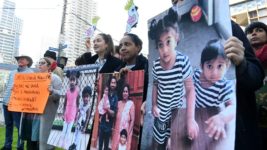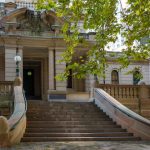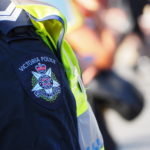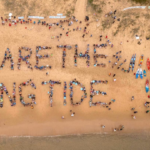Taxpayers Spend $30 Million to Keep One Family in Detention

A shocked Australian senate hearing heard earlier this week that the Home Affairs Department is spending $20,000 a day to keep a Tamil Family detained on Christmas Island while they await a decision on their future.
The Tamil family made headlines earlier this year as they unsuccessfully pursued every possible legal avenue available to them, to stay in Australia.
$20,000 a day
In late August, an attempt to deport the family was dramatically blocked by a last-minute court injunction. Following this, Peter Dutton sent the family into exile at the Christmas Island detention centre which was re-opened in April.
Since then, the Tamil family have been, and still are, the only inhabitants of Christmas Island – one man, one woman and two little girls.
And they’re being watched around the clock by between six and eight guards at a time, with more than 100 additional Serco employees on hand to assist in the family’s ongoing detention. All of this at a cost to Australian taxpayers of $30 million so far.
The story so far
The family: Nades, Priya, and their two Australian-born children, Kopika, age four, and Tharnicaa, age two had been living in the central Queensland town of Biloela until last year when they were taken into immigration detention in Melbourne following a raid on their home.
Nades and Priya say they face persecution if they return to Sri Lanka because of Nades’ past family links to the Liberation Tigers of Tamil Eelam, the separatist militant force that Nades says he was forced to join during the civil war.
The couple fled to Australia separately in 2012 and 2013 after Sri Lanka’s civil war, but they met here and married in 2014, and their eldest daughter Kopika was born in here in 2015.
Nades and Priya were both granted bridging visas while they made claims for refugee status. They had settled in Biolela and were making a life. Nades worked in the local abattoir and was also a volunteer with Saint Vincent de Paul.
Kopika’s claim for asylum was processed with her mother’s. Nades’ claim was processed separately. Early in 2018 Nades’ claim was rejected and all of his avenues for appeal failed. Priya and Kopika’s claims of asylum were also rejected. However, during their battle to stay in Australia, the courts heard that Nades frequently travelled between Sri Lanka, Kuwait and Qatar for work purposes between 2004 and 2010 – while the war was continuing – proof that Sri Lankan authorities did not consider him a threat.
Despite lodging a number of subsequent appeals which went all the way to the High Court, the family was unsuccessful in its bid to secure refugee status. But, hope arrived in the form of a last-minute injunction lodged by the solicitors while the plane taking the family to Sri Lanka was in mid-air on August 29th. The injunction was granted, as Tharnicaa – the youngest child – had not yet been assessed for a protection visa. The injunction forced the plane to land in Darwin and from there the family was then taken to Christmas Island where they remain.
During this headline-grabbing saga, many people have criticised Peter Dutton for not using his discretionary powers – as he has allegedly done for a number of au pairs – to let the family stay in Biloela – a community that has fought hard for them to remain. In fact, Labour’s Anthony Albanese has called the family’s legal battle with the Australian Government and their subsequent detention on Christmas Island ‘publicly funded torture’.
His sentiments are echoed far and wide.
In recent weeks the United Nations called on Australia to remove the family from Christmas Island while they await the decision on their future. But, the Home Affairs Department is resolute that despite the fact that as a nation our treatment of this family is being watched and judged on an international stage, the Australian government is under no obligation to comply with requests from the UN.
The department has confirmed that the family will remain on Christmas Island while judicial review proceedings are before the court.
Last month, the Federal Court ruled that the younger daughter (and hence the family) should remain in Australia until the case goes to a final hearing – and a date has not yet been determined.
The concern of course, is for the welfare of the family who are extremely isolated, locked in a fenced area, guarded every hour of the day, and facing an uncertain future.
The stress of all of these factors combined is very likely to eventually take its toll, not just on their emotional and psychological health, but their physical health too. And that is a very high price to pay, some would say too high, for entry into a country that is currently run by a government that has little respect for migrants, despite the fact that this is a country that has a long heritage of accepting foreigners and was once proud of its cultural diversity.







